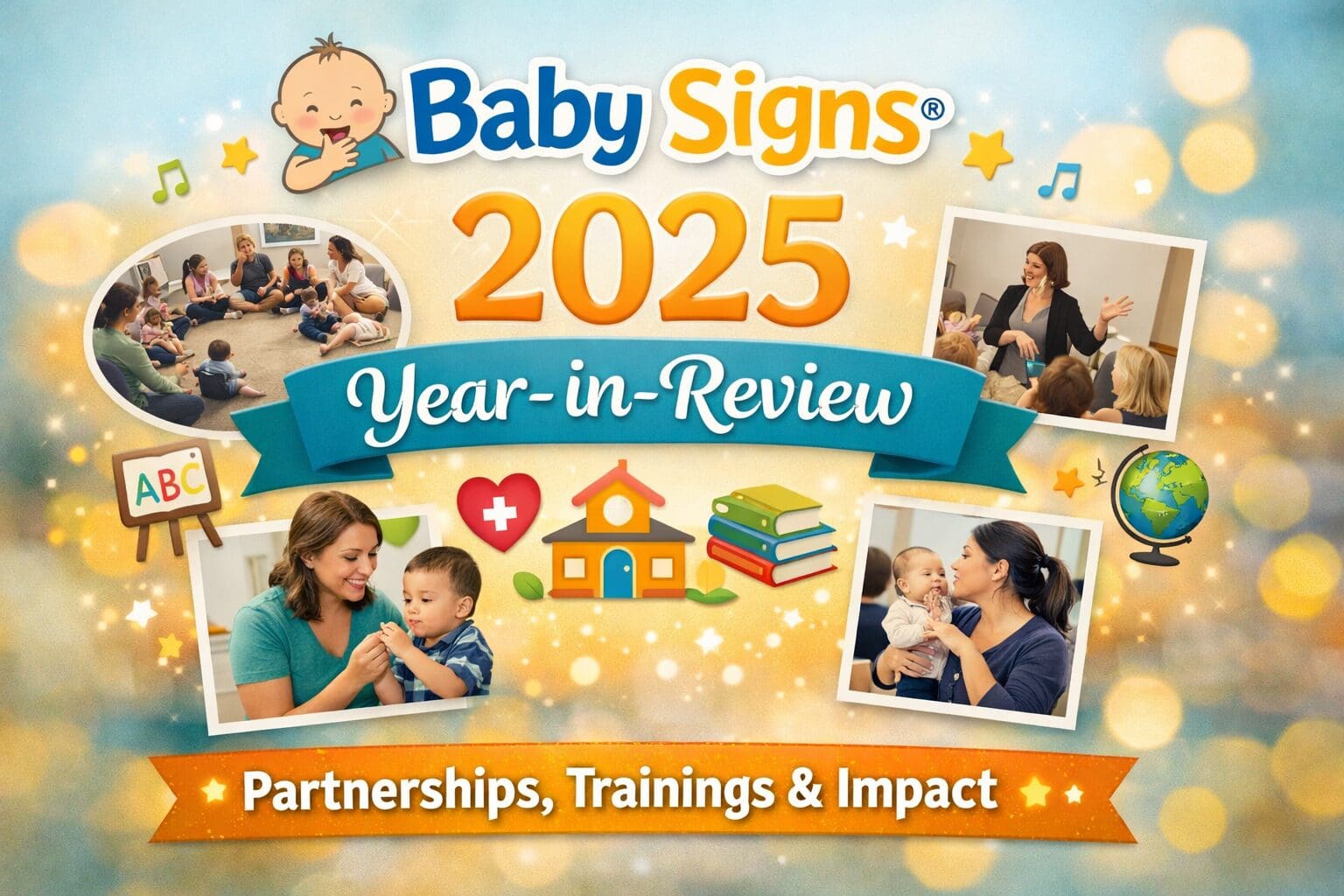
Enhancing Communication and Language Development: Exploring Baby Signs®
In the early stages of a child’s life, communication is essential for their overall development. Babies may not be able to speak yet, but they still have a strong desire to communicate their needs, thoughts, and feelings. This is where infant sign language comes in.
The Baby Signs® Program uses simplified gestures or hand movements that babies can learn to use to communicate their wants and needs before they are able to speak. These signs typically correspond to common words or concepts in a child’s daily life, such as “milk,” “eat,” “more,” “sleep,” and “play.” By using these signs, infants can effectively convey their desires, reducing frustration and enhancing their overall communication skills.
There are many benefits to teaching your baby sign language. Some of the most notable benefits include:
- Early communication: Baby Signs® bridge the communication gap between infants and their caregivers, enabling them to express themselves and be understood at an earlier stage. This can help to reduce frustration and promote a closer parent-child bond.
- Parent-child bonding: The act of signing with babies fosters a stronger bond between parents and their little ones, as it encourages attentive listening, responsiveness, and shared experiences.
- Cognitive development: Research suggests that baby signs contribute to cognitive development by stimulating memory, problem-solving abilities, and overall mental flexibility.
- Language skills: Babies exposed to signs often develop better language skills, including larger vocabularies and earlier sentence construction.
How to Teach Signs
If you’re interested in teaching your baby sign language, there are a few things you can do to get started.
- Start early: The best time to start teaching baby signs is around 6 months of age. This is when babies are beginning to understand and imitate simple gestures.
- Be consistent: Choose a set of signs that are relevant to your baby’s daily routine and consistently use them in context. Repetition and reinforcement are essential for learning.
- Simplify and repeat: Simplify the signs by using basic hand movements and repeating the sign while saying the associated word aloud.
- Incorporate fun and play: Make signing enjoyable by using animated facial expressions, engaging songs, and interactive games. Babies learn best through play.
Resources for Infant Sign Language
There are a number of resources available to help you teach your baby sign language. Some of the most popular resources include:
- Books: There are many books available that teach sign language.
- Videos: There are also a number of videos available that teach infant sign language.
- Classes: There are also a number of classes and workshops available for families, babies and professionals. These classes can be a great way to learn from an experienced instructor and connect with other parents who are interested in teaching their babies sign language. To find a certified Baby Signs® instructor near you click here.
Conclusion
Using the Baby Signs® program is a powerful tool for enhancing early communication, fostering parent-child bonding, and promoting cognitive and language development in infants. By incorporating signs into your daily interactions with your little one, you can create a rich language-learning environment that nurtures their overall growth. Whether you choose to learn from books, videos, or classes, the key is to embrace this wonderful opportunity to communicate and connect with your baby on a deeper level. Start signing today and witness the remarkable benefits it brings to your child’s language journey.
-
Welcome to the Baby Signs® Blog!
We are so excited to have you here. This blog is dedicated to providing information and resources for parents who are interested in teaching their babies basic sign language. We know that teaching your baby sign language can be a great way to help them communicate their needs and wants, build a stronger bond with
-
2025 Year in Review: Celebrating a Year of Connection, Growth, and Communication
As 2025 comes to a close, we’re taking a moment to reflect on a year filled with meaningful connections, expanded partnerships, and countless moments of communication shared between babies, families, educators, and professionals around the world. This year reaffirmed what has always been at the heart of the Baby Signs® Program: when babies are given
-
Winter-Themed Communication: Baby Signs® for the Season
As the weather turns colder and days get shorter, families find themselves navigating new routines, new environments, and-sometimes-new challenges. Winter brings big feelings for little ones: excitement, sensory overload, chilly transitions, bundling up, and more time indoors. It’s a perfect season to lean into early communication. The Baby Signs® Program gives babies and toddlers simple,
-

Winter-Themed Communication: Baby Signs® for the Season
-

Why the Baby Signs® Program Is the Perfect Gift for New Parents This Season



